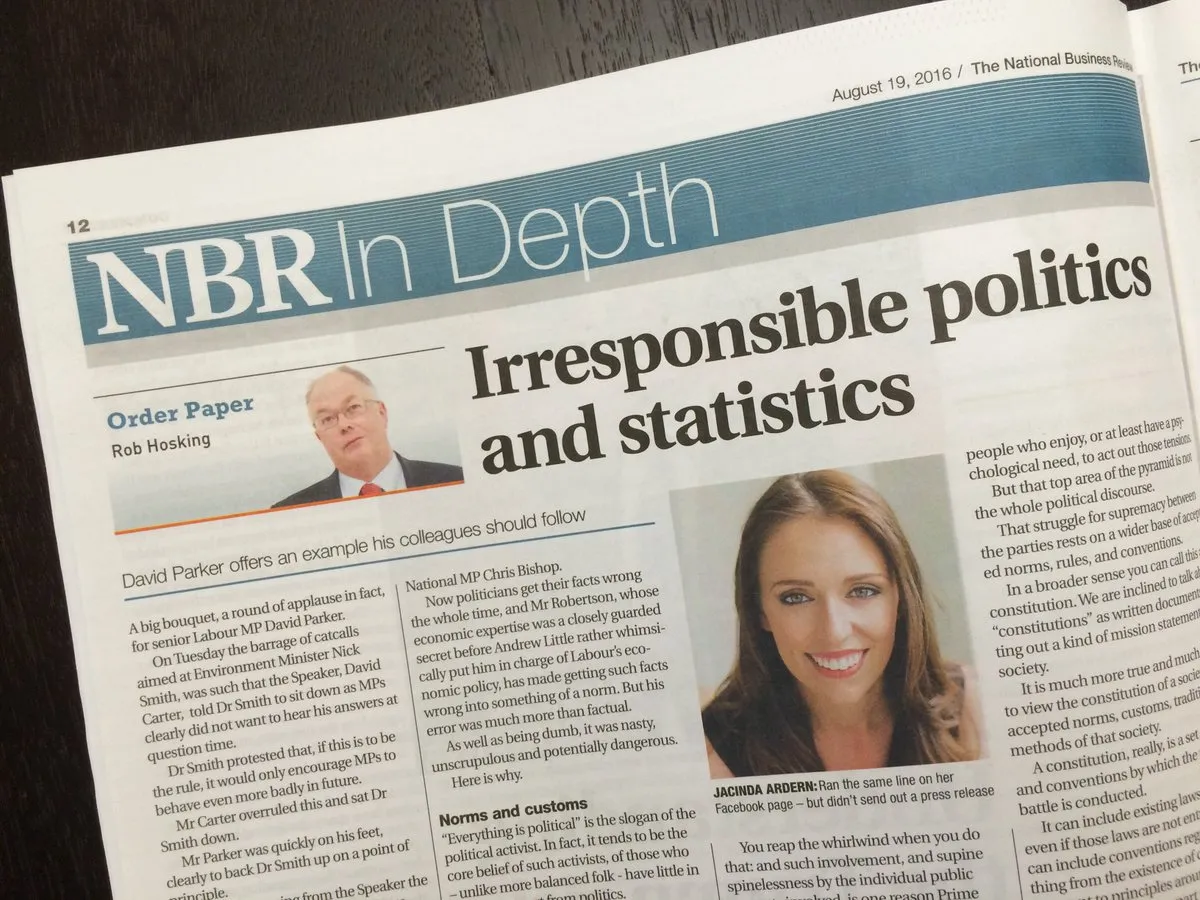Table of Contents
Don Brash
Don Brash was Reserve Bank Governor from 1988 to 2002, and National Party Leader from 2003 to 2006
I have subscribed to the National Business Review for many years and try to read their daily emails most days. Sometimes they have had some good articles, and one of their reporters is one of the best investigative journalists in the country.
But I have today advised the publisher that I do not want to renew my subscription when it expires shortly.
Why? Yesterday they published an article by Dita De Boni entitled “Right wing try dog-whistles to excite the wet and whiny ones”. The first lines of the article read:
Dog-whistling, race baiting – call it what you will, but National and ACT’s premeditated, strategic, and specific targeting of anxious white voters in the lead-up to election 2023 suggests these parties will do anything to win, even [if] it means stoking an unstoppable race war.
In the past few weeks alone, three issues with a racial element to them have been beaten up beyond all recognition by the NZ Herald and seized on by National and ACT in a way that suggests these parties have barely moved on from the Robert Muldoon years when it comes to race relations. The only difference is that, because of the times, Muldoon didn’t have to get into bed with the country’s lunatic fringe to find vocal support for his ideas, like the current lot.”
The article then goes on to dismiss as a “bogeyman” the Government’s plans to introduce co-governance across much of the public sector; to dismiss as trivial concerns about including te reo Maori on road signs; to criticize those who expressed dismay at allowing gangs the run of Opotiki recently; and to deplore those who strongly objected to adding ethnicity as a criterion in allocating places on the surgical waitlist.
I suppose I could not have objected to the article if the author had been explicitly identified as an advocate for the Labour Government, or for the Green or Maori parties. But she purported to be an objective journalist, writing a regular column for a business news-sheet.
I object most strongly to the statement that those who oppose the division of the country into those who have some Maori ancestry – now always with ancestors of other ethnicities as well – and those who do not are racist or “dog-whistling”.
What we are seeing is the Government aggressively promoting the view that the Treaty of Waitangi requires those with some Maori ancestry be given 50 per cent of the authority in the 10 regional Water Entities, with a Maori body having the authority to lay down the rules under which those Entities will operate; that those with some Maori ancestry have specific powers in the legislation advanced to replace the Resource Management Act; that local councils should likewise be obliged to gain consent from local tribes before taking almost any significant decision; that those with Maori or Pasifika ethnicity should be given a measure of priority on surgical waiting lists; and so on, through most dimensions of the public sector.
None of these policies are remotely consistent with a democracy where all citizens have equal political rights. They stem from an interpretation of the Treaty of Waitangi summarised in the infamous He Puapua report, prepared at the instruction of the Government in 2019, though kept under wraps until after the 2020 election.
Ironically, that report was arguing for more Maori involvement in the governance of the country at a time when the Leader and Deputy Leader of the National Party were Maori, as were the Deputy Leader of the Labour Party, the Leader and Deputy Leader of the New Zealand First Party, the Co-Leader of the Green Party, and the Leader of the ACT Party. To pretend that Maori were insufficiently represented in the halls of power was demonstrably nonsense.
Dita De Boni’s article made much of the widespread public resentment at the NZ Transport Agency’s adding te reo Maori to road signs. Yes, whether road signs are in English only or are in both English and te reo Maori is not the most important issue facing the country, but I suspect the public irritation over this reflects the widespread anger at the renaming of our major cities, and indeed the country itself.
When John Key’s Government suggested it was time to change the country’s flag, he had the decency to put the issue to a referendum, and accepted the result of that referendum when the majority made it clear that they did not favour any change. But this Government routinely uses Aotearoa or Aotearoa New Zealand as the name of our country, despite polls showing a clear majority of the country favour the retention of the name which has been the name of our country since 1642, with Aotearoa being a late 19th century invention. (In 1840, the Maori words used for New Zealand were Nu Tireni.)
Likewise, many New Zealanders resent the fact that taxpayer-funded media persist in using Maori names for our major cities, even though none of those cities were in any meaningful sense Maori creations.
The cumulative effect of the superficial changes – Maori names for our major cities, the use of Aotearoa as the name of our country, Maori words on road signs – added to the really major constitutional changes which the Government has been aggressively promoting means that political parties which adhere to basic democratic principles are getting real traction.
That isn’t dog-whistling and it certainly isn’t racism. It is a demand that all citizens should have equal political rights, regardless of ethnicity – as the Treaty of Waitangi promised and any concept of democracy demands.









